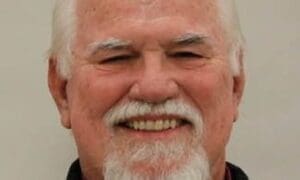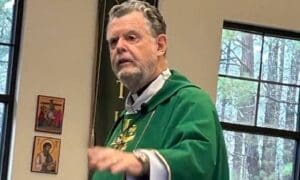As the Christian church spread throughout the Roman world in the first century, and as the first leaders died out, there was a practical need for local churches to have a basic statement of beliefs. As false teachers began to bring in strange ideas, Christians needed to know “Just what is it that we believe?”
Churches in different cities and regions made their own lists, which had many points in common, since all the churches had traditions tracing back to the apostles in one way or another. The small differences were eventually eliminated as church leaders discussed these things with one another. They shared not only the scriptures they had, but also their statements of faith.
When Christianity became a legal religion in the fourth century, this process became easier. Churches throughout the empire agreed on which books should form the New Testament, and they agreed on several basic statements of faith.
One of the doctrinal lists commonly used in the Western empire was called the Apostles’ Creed. The word “creed” comes from the Latin word credo, meaning “I believe.” It was called “Apostles” not because the apostles themselves wrote it (although some people may have thought this), but because the Creed was believed to be an accurate summary of what the apostles taught. (ref. www.gci.org)
During the Protestant Reformation in the 16th century, Martin Luther, former Roman Catholic priest and leader of the Reformation, wrote his “Small Catechism.” This included the Apostles’ Creed as it had come down through the ages, but he also wrote “explanations” to each of the parts to give people the best understanding of what was being professed as “the faith of the Church.”
Here is the Apostles’ Creed along with Martin Luther’s explanations of each of the three “articles.”
The First Article
I believe in God, the Father almighty, creator of heaven and earth.
What does this mean? I believe that God has created me and all that exists. He has given me and still preserves my body and soul with all their powers. He provides me with food and clothing, home and family, daily work, and all I need from day to day. God also protects me in time of danger and guards me from every evil. All this he does out of fatherly and divine goodness and mercy, though I do not deserve it. Therefore I surely ought to thank and praise, serve and obey him. This is most certainly true.
The Second Article
I believe in Jesus Christ, his only Son, our Lord. He was conceived by the power of the Holy Spirit and born of the virgin Mary. He suffered under Pontius Pilate, was crucified, died, and was buried. He descended into hell. On the third day he rose again. He ascended into heaven, and is seated at the right hand of the Father. He will come again to judge the living and the dead.
What does this mean? I believe that Jesus Christ — true God, Son of the Father from eternity, and true man, born of the Virgin Mary — is my lord. At great cost he has saved and redeemed me, a lost and condemned person. He has freed me from sin, death, and the power of the evil — not with silver or gold, but with his holy and precious blood and his innocent suffering and death. All this he has done that I may be his own, live under him in his kingdom, and serve him in everlasting righteousness, innocence, and blessedness, just as he is risen from the dead and lives and rules eternally. This is most certainly true.
The Third Article
I believe in the Holy Spirit, the holy catholic (“universal”) Church, the communion of saints, the forgiveness of sins, the resurrection of the body, and the life everlasting. Amen.
What does this mean? I believe that I cannot by my own understanding or effort believe in Jesus Christ my lord, or come to him. But the Holy Spirit has called me through the Gospel, enlightened me with his gifts, and sanctified and kept me in true faith. In the same way he calls, gathers, enlightens, and sanctifies the whole Christian church on earth, and keeps it united with Jesus Christ in the one true faith. In this Christian church day after day he fully forgives my sins and the sins of all believers. On the last day he will raise me and all the dead and give me and all believers in Christ eternal life. This is most certainly true.
—————–
Kollmeyer is senior pastor of Prince of Peace Lutheran Church in Fayetteville, located on Hwy. 314 between Lowe’s and The Pavilion. The “Contemporary Service” at 9:15 features dynamic worship with music led by the Praise Band. This service is less formal and also provides a “Kids’ Own Church” for a break-out during the sermon. The “Traditional Service” at 11:15 features the beauty and majesty of the pipe organ and choir and the singing of the great hymns of the faith. “Give us a try!” www.princeofpeacefayette.com or 770-461-3403.











Leave a Comment
You must be logged in to post a comment.